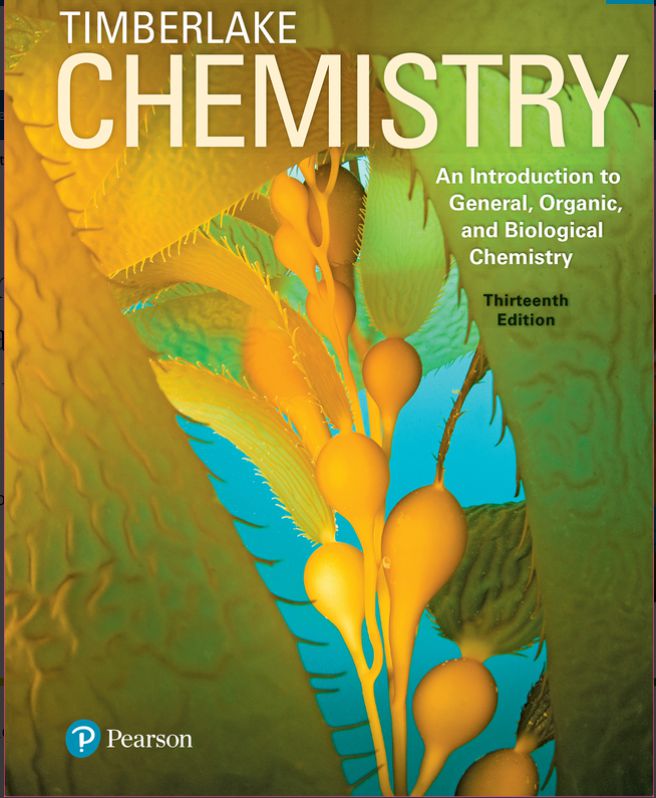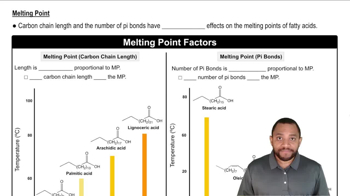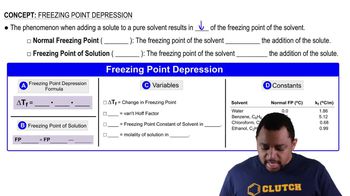If the same amount of heat is supplied to samples of 10.0 g each of aluminum, iron, and copper all at 15.0 °C, which sample would reach the highest temperature (see TABLE 3.11)?

Identify each of the following changes of state as melting, freezing, sublimation, or deposition:
b. Snow on the ground turns to liquid water.
 Verified step by step guidance
Verified step by step guidance
Verified video answer for a similar problem:
Key Concepts
Melting

Freezing

Phase Change

Use the heat equation to calculate the energy, in joules and calories, for each of the following (see TABLE 3.11):
c. lost when 15.0 g of ethanol, C2H6O, cools from 60.5 °C to −42.0 °C
Identify each of the following changes of state as melting, freezing, sublimation, or deposition:
a. Dry ice in an ice-cream cart disappears.
Identify each of the following changes of state as melting, freezing, sublimation, or deposition:
c. Heat is removed from 125 g of liquid water at 0 °C.
Identify each of the following changes of state as melting, freezing, sublimation, or deposition:
d. Frost (ice) forms on the walls of a freezer unit of a refrigerator.
Using the values for the heat of fusion, specific heat of water, and/or heat of vaporization, calculate the amount of heat energy in each of the following:
c. kilojoules needed to melt 24.0 g of ice at 0 °C, warm the liquid to 100 °C, and change it to steam at 100 °C
